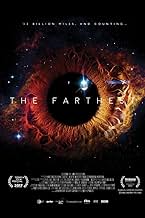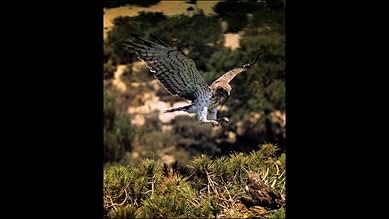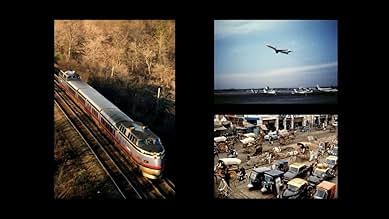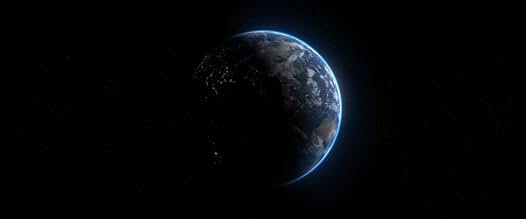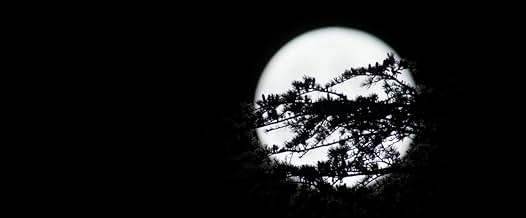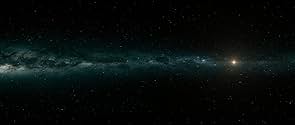It is one of humankind's greatest achievements. More than 12 billion miles away a tiny spaceship is leaving our Solar System and entering the void of deep space - the first human-made object... Read allIt is one of humankind's greatest achievements. More than 12 billion miles away a tiny spaceship is leaving our Solar System and entering the void of deep space - the first human-made object ever to do so.It is one of humankind's greatest achievements. More than 12 billion miles away a tiny spaceship is leaving our Solar System and entering the void of deep space - the first human-made object ever to do so.
- Awards
- 12 wins & 9 nominations total
- Director
- Writer
- All cast & crew
- Production, box office & more at IMDbPro
Featured reviews
This is slightly better than most PBS hour long specials. It's actually 96 minutes and packs an emotional punch. The wide-eyed poetry of exploration is well presented. This is a lot things. It's an underdog story. It's a scientific documentary. It's an exploration thriller. It brings back all the great discoveries. This could be great for inspiring a high school science class.
Written & directed by Emer Reynolds, this documentary is narrated in a way that piques our curiosity & intrigues our ever-inquisitive mind, and covers the journey of Voyager 1 & 2 through the recollections from the crew responsible for making the mission an extraordinary success. Employing interviews, archive footage, CGI simulations & some of the breathtaking images these probes took, the film really acquaints the viewers with the wonders of space & importance of its exploration.
The documentary goes into detail with how this mission came to be, the golden record & its significance, the close-calls it survived and how the probes continue to defy expectations even today, becoming the first man-made objects to leave solar system & enter interstellar space. From Jupiter to Neptune, each planet & their moons are explored in fine detail. And the film not only looks at it from a scientific viewpoint but also offers a philosophical perspective. And it's accessible throughout.
Overall, The Farthest is amongst the most fascinating documentaries about space exploration and is one illuminating ride that aptly reflects the passion, intimacy & enthusiasm of the crew behind the Voyager program. Their testimonies lend solid weight & emotional depth to these scientific instruments, plus the fact that these space probes are most likely to outlive its inventors makes them a valid contender for humankind's greatest achievement. My only gripe is that it's only 2 hours long, for I didn't want this mesmerising journey to end. In short, a humbling experience.
The film was a bit too long, at two hours, and maybe it would have been more powerful as a mini-series instead. It goes through the excitement when it first reaches Jupiter, then Saturn, then the bitter sweet moment when Voyager 2 reaches Uranus at the same time that Challenger explodes and finally Neptune. Another quote was about how small color dots from the Earth telescopes turn into worlds when Voyager goes past the planets.
I love all of these documentaries, which show who worked passionately to make things like these happen, to truly further humanity against all odds and against its mostly indifferent members, shows that really show the worlds around us and expand our horizons. If you love space, you should see this.
'The Farthest' does its subject justice and as every bit a remarkable achievement. It is for me a highlight of 2017, and is accessible to anybody. One does not have to have deep knowledge of the story of the two voyagers to be completely fascinated by 'The Farthest'. It will illuminate those who do, nobody should be frustrated at not learning anything new, but has enough that will attract a wider audience who may have heard of it but not in great detail or have no knowledge and want to know more.
Visually, 'The Farthest' is stunning, beautifully photographed and those images of Jupiter, Saturn, Uranus and Neptune are enough to take the breath away. Loved the wide variety of music choices and felt they added a lot.
Emer Reynolds' direction impresses hugely, she does play it safe with combining the NASA interviews with simulations of CGI, poetic shots of Earth and archive footage. Yet it doesn't feel too safe at all, with enough ambition that never comes over as over-ambitious.
Loved the way 'The Farthest' was written and assembled. The scientific elements are hugely intriguing and illuminating to anybody watching regardless of how expertly or limited their knowledge. Then there are some philosophical elements that are thought-provoking and even touching, without being self-indulgent.
Where 'The Farthest' particularly excels are how the enthusiasm (perceptive and honest and never glorifying) of the crew (namely the scientists and engineers) is conveyed, adding even further to how inspirational this mission and story are, and how ingeniously imaginative the technology (the technology itself and behind the scenes of how it came to be) is in making the mission possible. These are presented in a very humble manner.
In summation, remarkable. 10/10 Bethany Cox
Did you know
- Quotes
Title Card: This is a present from a small distant world, a token of our sounds, our science, our images, our music, our thoughts and our feelings. We are attempting to survive our time so we may live into yours. -President Jimmy Carter's Golden Record Message, June 16th 1977
- ConnectionsFeatured in Box Office: Episode dated 26 July 2017 (2017)
- SoundtracksAlima Song
From the album Music of the Ituri Forest
Courtesy of Smithsonian Folkways Recordings
- How long is The Farthest?Powered by Alexa
Details
Box office
- Gross US & Canada
- $14,773
- Opening weekend US & Canada
- $6,900
- Aug 13, 2017
- Gross worldwide
- $44,921
Contribute to this page




